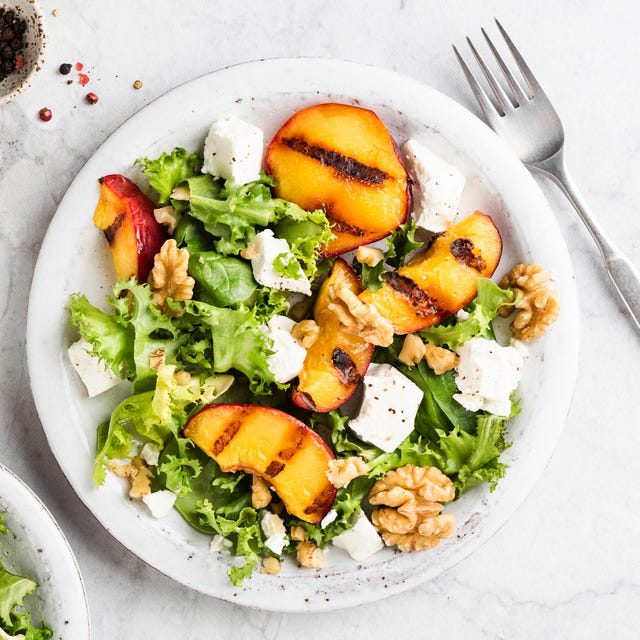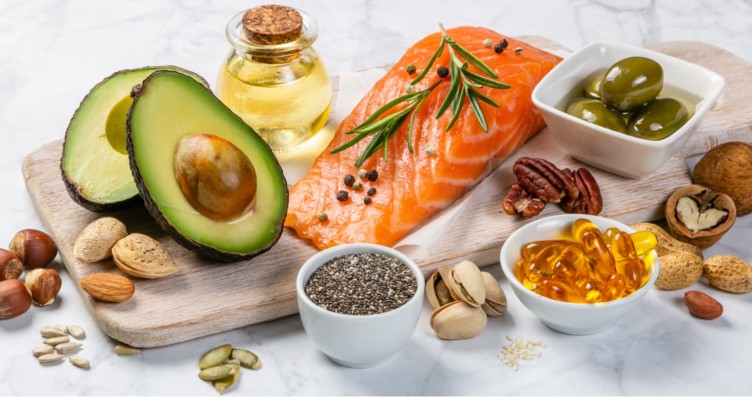
If you’re into the latest food trends, chances are you’ve heard of Bulletproof Coffee. It’s coffee mixed with grass-fed, unsalted butter or ghee and medium-chain triglyceride (MCT) oil. It works with low-carb, paleo, and keto diets. Its founder, Dave Asprey, also created the Bulletproof Diet in 2014. He released the book that accompanies the eating plan, The Bulletproof Diet: Lose Up to a Pound a Day, Reclaim Energy and Focus, Upgrade Your Life, the same year.
A little bit of a back story: “The founder was looking to lose weight himself, and created his own diet that he labeled the Bulletproof Diet,” says Roxana Ehsani, a sport nutritionist in Miami, Florida. Basically, it is very high in fat, moderate in protein, and very low in carbs. It also incorporates days of intermittent fasting and higher carb intake on one to two days of the week, she adds.
Not surprisingly, the Bulletproof Diet encourages you to start every day with a cup of Bulletproof Coffee. Then for five to six days of the week, you should eat a keto-like diet (high in fat, moderate in protein, and very low in carbohydrates), and the remaining one to two days are “carb refeed” days, where you should eat 300 grams of carbs. Asprey also suggests that you only eat organic produce and grass-fed meats. It’s very specific with the foods you are allowed to eat, and which foods you are not allowed to eat. (More on that later.)
The Bulletproof Diet is not backed by science, says Ehsani, and no studies have been done on it. “It’s a fad diet that restricts and cuts out major food groups to shed weight quickly,” she notes.
Still want to learn more? Nutrition experts break down what you need to know about the diet—the benefits, downsides, and whether you should follow it.
Can the Bulletproof Diet help you lose weight?
If you’re looking to lose weight, you likely will lose weight if you follow the Bulletproof Diet. But it’s not the healthiest way to go about that.
“This diet would not be considered a healthy method of weight loss,” says Ehsani. “You may see weight come off quickly when following this diet (or any other fad diet for that matter), but the type of weight you lose most likely will be temporary and won’t stay off for long. Instead, the moment you consume carbohydrates again, you will see the weight come back.”
THIS DIET WOULD NOT BE CONSIDERED A HEALTHY METHOD OF WEIGHT LOSS.
Besides being a restrictive diet, another issue with the Bulletproof Diet may be the intermittent fasting part. The diet includes it, but also doesn’t give specific guidelines on how much you should be doing. “Intermittent fasting is research backed for weight loss, but it also restricts the amount of hours you are allowed to eat, further making the Bulletproof Diet a restrictive, unrealistic and hard-to-follow diet,” says Ehsani.
While there is research that high-fat, low-carb diets can be beneficial for weight loss, the same can’t be said for the Bulletproof Diet specifically. High-fat, low-carb diets have also been found to help people lose weight quickly, but is not efficient long-term.
Plus, a study published in 2021 found that the keto diet, which the Bulletproof Diet is pretty similar to, may lead to long-term health risks, including increased risk for cancer, heart disease, and Alzheimer’s.
What can you eat on the Bulletproof Diet?
The Bulletproof Diet is extremely particular about the foods you can and cannot eat. The diet lists foods you can (and should) eat as “bulletproof,” and the foods you can’t eat as “toxic.” These are foods considered bulletproof.
- Cauliflower
- Asparagus
- Lettuce
- Olives
- Almonds
- Cashews
- Sweet potatoes
- Blackberries
- White rice
- Carrots
You’re encouraged not to eat the following.
- Oats
- Quinoa
- Milk
- Cantaloupe
- Raisins
- Raw kale
- Spinach
- Beets
- Mushrooms
- Garbanzo beans
- Dried peas
- Legumes
- Peanuts
Besides the foods themselves, Asprey also has guidelines for how you cook them. He labels cooking methods as “kryptonite” (a.k.a. very bad) or “bulletproof” (a.k.a. very good.)
Cooking methods deemed “kryptonite” include deep frying, microwaving, stir-frying, broiling, barbecuing. And cooking methods deemed “bulletproof” are raw, slightly cooking, pressure cooking, and baking at or below 160°C.
What are the potential downsides of the Bulletproof Diet?
Ehsani would strongly advise against following this diet, and a lot of that has to do with the foods you can and cannot eat. “Asprey labels the ‘no’ foods as toxic, which is a terrible way to classify food,” she says. “This can lead people to develop unhealthy relationships to foods, such as disordered eating or eating disorders.”
A lot of these foods are highly nutritious and have endless information backing how nutritious they all are, such as kale, spinach, beets, oats, quinoa, milk, yoghurt, peanuts, and cantaloupe.
“All are loaded with vitamins, minerals, antioxidants, and dietary fibers,” she says. “It’s a random list of foods you can vs. can’t eat that don’t even make sense. And there are plenty of studies on foods that promote longevity—which are fruits, veggies, whole grains, beans, lentils, nuts, and seeds (some of which this diet cuts out).”
And by recommending just coffee in the morning, you’re giving yourself a false sense of energy that you are getting from the caffeine, but also setting yourself up to get an ulcer or GERD, which can happen after having coffee on an empty stomach, adds Ehsani.
And since it’s a low-carb diet, it can be risky for people who work out a lot. “I wouldn’t recommend this diet, especially to endurance athletes. Carbohydrates are the primary source and the cornerstone for energy,” says Jonathan Valdez, RDN, the owner of Genki Nutrition and a spokesperson for the New York State Academy of Nutrition and Dietetics.
With high-fat diets, you may be missing out on vitamins and minerals found in carbohydrate-containing foods, like fruits and whole grains, he says.
What’s the difference between keto and the Bulletproof Diet?

As you’ve probably gathered by now, the keto diet and the Bulletproof Diet are very similar. However, the Bulletproof Diet has a different structure.
“Both are high-fat, very low-carb diets. But the Bulletproof Diet is different in that it only recommends you do the keto diet for five to six days a week, then on the other one to two days you can eat more carbs,” says Ehsani.
And the Bulletproof Diet is more restrictive than keto, since it cuts out specific foods that are not necessarily off-limits on the keto diet.
“I wouldn’t say one is better than the other. I would say both are restrictive diets that won’t provide you with a long-term solution towards healthy weight loss,” says Ehsani. “And neither provide long-term health benefits either.”